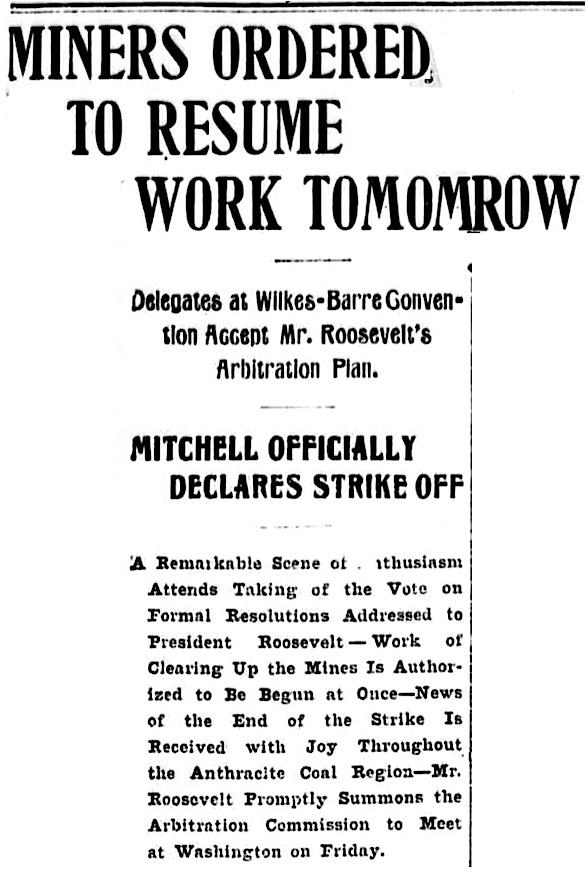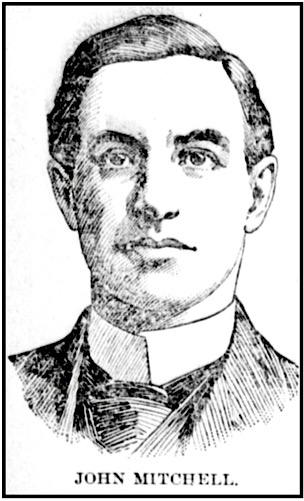 —————
—————
Hellraisers Journal – Friday October 24, 1902
Pennsylvania Anthracite Strikers Ordered to Resume Work, Part I
From the Scranton Tribune of October 22, 1902:
[Part I of II]
By Exclusive Wire from The Associated Press.
Wilkes-Barre, Pa., Oct. 21.-With a shout that fairly shook the convention building, the representatives of the 147,000 mine workers, who have been on strike since last May, officially declared off at noon today the greatest contest ever waged between capital and labor, and placed all the questions involved in the struggle into the hands of the arbitration commission appointed by the president of the United Slates. When the news was flashed to towns and villages down in the valley and on the mountains of the coal region, the strike-affected inhabitants heaved a sigh of relief.
Many days have gone by since more welcome news was received. Everywhere there was rejoicing, and in many places the end of the strike was the signal for impromptu town celebrations. The anthracite coal region, from its largest city-Scranton-down to the lowliest coal patch has suffered by the conflict, and everyone now looks for better times. While the large army of mine workers and their families, numbering approximately half a million persons, are grateful that work is to be resumed on Thursday, the strikers have still to learn what their reward will be. President Roosevelt having taken prompt action in calling the arbitrators together for their first meeting on Friday, the miners hope they will know by Thanksgiving day what practical gain they have made.
The vote to resume coal mining was a unanimous one and was reached only after a warm debate. The principal objection to accepting the arbitration proposition was that no provision was contained in the scheme to take care of those men who would fail to get back their old positions, or would be unable to get any work at all. The engineers and pumpmen get better pay than other classes of mine workers, and they did not wish to run the risk of losing altogether their old places and be compelled to dig coal for a living. This question came up yesterday, and was argued right up to the time the vote was taken. No one had a definite plan to offer to overcome the objection, and the report of the committee on resolutions, recommending that the strike be declared off and that all issues be placed in the hands of the arbitration commission for decision, was adopted without the question being settled. A few moments before adjournment, however, a partial solution was reached when a delegate in the farthest corner of the hall moved that the problem be placed in the hands of the three executive boards for solution, and his suggestion was adopted.
The principal speech of the day was made by National Secretary-Treasurer W. B. Wilson, who practically spoke for President Mitchell and the national organisation. In a strong argument he counselled the men to accept arbitration, the very plan the strikers themselves had offered, return to work and trust to the president’s tribunal to do them justice.


